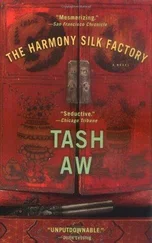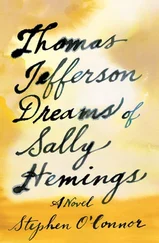Certain things we figured out pretty quickly. When you arrive in a new place, buy a ticket out immediately (demand is high). We always went hard sleeper, too. Each carriage had 20 rows of three-tiered bunks – the secret was to go for middle and bottom. If you got the top bunk, you were squashed against the ceiling where tiny fans whirred day and night. On our first journey, I opened the window to let air in and a Chinese man shut it. I opened it again. Wrong! This was a steam train and the smoke and soot blew straight in our eyes; it was even worse going through a tunnel. Those 33-hour journeys were long, with people spitting and vendors offering fried food through open windows at the stations.
But there was plenty to marvel at: light flooded the valleys and the endless green paddy fields. In fact, there was a strange tranquillity in the knowledge that you couldn’t go anywhere but just had to sit there with all those people and the train jolting beneath you and take it all in. It’s amazing how the mind can release its normal grip on time when you allow it to do so.
Suddenly a group of Chinese women appeared and motioned for me to accompany them. I got up and followed them down the train, where I found Laura, an English girl, in floods of tears. She was going to Shanghai for her medical elective. Overwhelmed by the foreignness and loneliness of it all, as well as her predicament, she couldn’t stop weeping. Alarmed, her fellow passengers had gone in search of other foreigners known to be travelling on the train. Laura cheered up when she saw me and shared her fears. How lucky I was, I realised, to have Andrew. I sat comparing travel notes with Laura until we parted at Shanghai, by which stage she was once again looking forward to her adventure.
From Shanghai our journey took us up the Yangtze River in a decrepit old passenger boat. It was filthy, with squatting toilets and inedible food (if you were lucky enough to find any) and was as hot as a furnace. We’d booked second-class tickets and found ourselves stuffed into an airless, crowded dormitory but then we met a couple of English tourists who had cleverly booked a first-class cabin with curtains and a breeze. Instantly, we became best friends and took refuge in their cabin, playing cards and chatting.
We disembarked at Nanjing and then went on to Xian to see the newly discovered Terracotta Army. Standing in a vast cavern, looking at those mythical soldiers was a surprisingly moving experience.
It was becoming increasingly apparent that the authorities didn’t like independent travellers. We had to keep avoiding the CITS (Chinese International Travel Service), who were keen to bus everyone to the foreigners’ hotels, where they could keep tabs on us all. Instead we stayed at a student hostel in Beijing University, where everyone wanted to talk to us. Big things are going to happen , we were told. We had no idea what the students meant but the following year, 1989, came the Tiananmen Square massacre. You could see the curiosity and interest in the young people’s faces as they asked questions about the other side of the globe, places they could only dream of. We felt like early travellers coming back with reports of life in faraway countries: we were the lucky ones.
From Beijing we travelled out to the Ming Tombs and the Great Wall of China. Within moments of walking, we found ourselves alone, gazing out at mountains that seemed to be forever rolling on; the scale was incredible. The Great Wall snakes into the distance and I can well believe that it can be seen from space.
And all the time we dreamed of Tibet.
But we weren’t the only ones. The closer we got to the border, the more Westerners we met, all intent on making the same journey. ‘Have you noticed beer is cheaper than bottled water?’ was a common greeting. There was a sense of camaraderie among the Europeans which meant we operated as one: we were tourists from the same place – the West. We arrived in Xinning and then went onto Golmud, the end of the railway line, which resembled a film-set of dusty nothingness. It was an eerie place. Behind us the sun disappeared in clouds of dust and I fell horribly ill after eating a yak burger. Lying in the hotel bed, thinking I was about to die, I became obsessed with a need for apple juice.
‘I want apple juice!’ I moaned.
When Andrew appeared through the door, hours later, with a tin can of fizzy apple juice, I thought I was hallucinating. Gulping it down thirstily, I felt instantly better.
By the time we arrived in Golmud we were among a group of 10 Westerners from Canada, USA, Switzerland and the UK – a big bunch of backpackers. We were herded into a hotel by the notorious CITS, who told us we would have to pay £200 each for a three-day trip into Tibet – ‘guided’, of course. As we wanted to travel through Tibet and on into Nepal this represented a bit of an issue, never mind the cost. After discovering one of our group spoke Tibetan, we could scarcely believe our luck. Now we could improvise: we could smuggle ourselves over the border, which was exactly what we did.
Serendipity has a funny way of taking over in situations like this. You just need to know roughly where to look and be prepared to pay for it. Before long, we had found a local bus driver who was driving the scheduled bus long distance into Tibet. We were smuggled out of the hotel in the middle of night when it was pitch-black. At the Chinese checkpoint where we left Golmud, the driver turned off the bus lights.
No one spoke English.
It was real cloak-and-dagger stuff: we were disguised in cowboy hats and cloaks provided by the Tibetans. The biggest problem was my blonde hair, which I had to stuff inside my hat. When the bus stopped we were herded out to walk around potholes too deep for it to be driven across, some stretching 20 feet long. We were conscious of passengers being beaten by Chinese soldiers but no one asked why.
Then we passed into Lhasa.
‘Not in China now, no passports,’ the hostel keeper informed us.
Grinning from ear to ear, we dumped our bags on the floor. We’d made it, though we weren’t entirely sure how it had happened.
The next morning – a crystal-clear day – we woke up in Lhasa and gazed up at the Palace, which sits on a ridge and was framed by the mountain range with slopes of snow and rock. It was as if we’d stepped back in time. We got dressed, had some tea and went for a walk. In silence, we gazed up at the stupas containing the bodies of all the Dalai Llamas.
‘Psssst!’
We turned to find a young monk behind a pillar.
‘You speak English?’ he asked (it was illegal for Tibetans to learn English).
‘Yes.’
He showed us a book.
‘AD,’ he said. ‘What does this mean?’
‘Anno Domini, the year of our Lord. Have you heard of Christ?’
His face lit up: ‘Ah, the Pope!’
Although we always hoped to get to Tibet, the prospect of climbing the Everest Foothills had been a distant reality. It only began to sink in as we packed our rucksacks with supplies for the trip. I’ve got a photo of Andrew sitting on the bed in the guesthouse studying the guidebook. Beside him on a wooden table is a pile of cans and packets, the tallest stack being noodles. (In the high altitude, the water wouldn’t boil and we had to eat them still crunchy.) Next to the noodles are cans of spam, lychees, peas, a jar of redcurrant jam, powdered baby milk that we drank with melted chocolate squares on top (delicious!), sampa (barley rolled in yak milk to make little balls of dough like a solid porridge) and loo rolls. We had to buy it all from the Friendship Store (a store only foreigners can use) as nothing was available locally. It meant playing along with the Chinese, using their currency rather than the local Tibetan Riminbi and pretending we were just tourists there for the day.
Читать дальше












